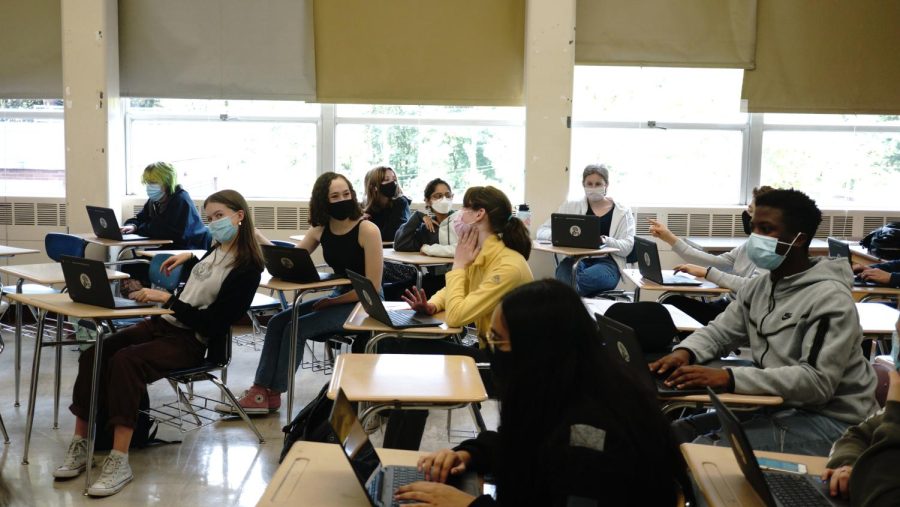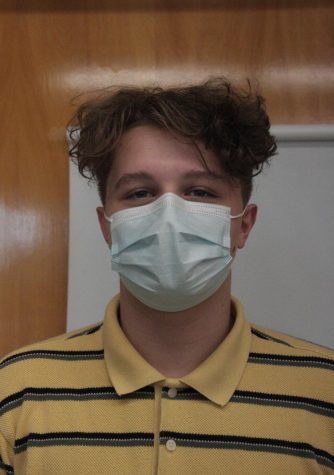What to Know About the Delta Variant and How It Affects You
October 6, 2021
SARS CoV-2
As the days pass, more cases falling under the Delta variant have created worry within the Ida B. Wells-Barnett community. Many are left asking: How are people feeling about the state of the pandemic? What even is the Delta variant? Why does everyone’s immune system respond so differently to the virus? Let’s start from the beginning.
In December of 2020, a Covid case emerged in India that was different from previous cases. This strain, identified as SARS CoV-2, or Delta, was found to be two times more effective in spreading.
By September 24th, Delta made up 99% of incoming cases and infections regardless of vaccination status. With this, Ida B. Wells-Barnett students and staff fear possible isolation in regards to the highly contagious mutation.
However, Ida B. Wells senior, Tom White, is content with the school’s Covid prevention strategy. “You know, I feel safe in school, I’m vaccinated and everyone’s wearing masks. I feel, even if I got Covid, because I’m vaccinated, I’d probably be ok”.
This sense of security raises a question at the forefront of people’s minds. While as of October 6th, 61.16% of people in Oregon, like White, are fully vaccinated, yet they are still capable of contracting Covid.
However, King County’s data shows that unvaccinated people are 49 times more likely to be hospitalized with Covid and 32 times more likely to die.
“For folks who are not vaccinated, this is a big, big deal and I’m hoping more and more students and adults will get vaccinated,” says Principal Filip Hristić of Ida B Wells, “I think at some point this year it’s quite possible that, in order to get into school events, like football games and basketball games, you’re gonna have to show proof of vaccination.”
Uncertain Times
Students just becoming high school freshmen are thrown into an environment that many high schoolers in previous years couldn’t imagine.
Carley King started high school at Ida B. Wells this year and, with the prominence of Covid protocols, she has become more aware of Covid in her bubble. “You don’t really think about it until one of your friends gets sick and then a bunch of other friends have to quarantine. Then you’re like, oh, wow, that’s right next to me.”
King is grateful to be doing in-person school, especially after ending her middle school experience online. “Honestly, I really hope that we don’t have to go into quarantining again.”
White also worries about the possibility of quarantine, doubting the appropriateness due to the effectiveness of the vaccine, “I think it was probably the right move at the beginning. I would say now, probably not because you have access to the vaccine. Most of the Delta variant’s hospitalizations have been people who are unvaccinated. So at this point, you’re kind of asking for it. You kind of get to choose how much risk you want.”
While airing concerns of Delta, Hristić said he would do everything in his ability to avoid distance learning again. “We’re not going back to CDL [Comprehensive Distance Learning] unless things get super extreme and, given the efficacy of the vaccines, the likelihood is much higher that we’ll finish up the year [in person].”
Different Impacts
In early July, Covid began reaching its all-time lows in total cases and hospitalizations. The world began believing that the pandemic was coming to a close. However, Covid suddenly reinserted itself back into people’s lives with much more ferocity than many expected. With this new spike, old and new questions recirculate. A common one is, “Why is everyone affected by Covid differently?”
Scientists and CDC officials have made many attempts to understand why some people can become asymptomatic spreaders whilst others are gravely ill on ventilators. There are many ideas, some revolving around vitamins and others with lung capacity, but there is no answer set in stone.
According to the Yale School of Medicine, it’s thought to result from different levels of inflammation in response to the virus. Some people who catch Covid have an extreme inflammatory response due to something called “cytokine storm”. This inflammatory response can cause damage to tissue which can lead to organ failure and conclude in death.
This is scary stuff, but worriers should be aware this is a very rare inflammatory response, with cytokine storm being a result of only 4% of cases according to a study done in November 2020 by Washington University School of Medicine. Even when affected, inflammatory response is being monitored and searched for in hospitalizations and are actively being battled with anti-inflammatory medications like Ruxolitinib and Baricitini.
Keeping Hope
As the virus increases in spread, Dr. Zafer Yildirim of Yale University explains, “Delta seems to be impacting younger age groups more than previous variants.” This is due to young people getting fewer vaccinations than their older counterparts. “As of the end of July, less than 50% of teenagers in the U.S. were vaccinated.”
Many people are torn on what to feel as new statistics contradict others and old knowledge becomes updated and changed. All this confusion can be overwhelming for people confined in public spaces surrounded by potentially covid positive students. All we can do is follow the rules and make a conscious effort to be safe and thoughtful.
Everyone should feel safe and secure in a school environment and it’s good to take a breather and know that we’re here for each other, even though Delta has put many of our aspirations on a ball chain by making us relive another spike in cases. Even in uncertain times, we all know the Ida B. Wells staff, students, and teachers will persevere like we always do.
For More Information
https://www.nytimes.com/2021/07/20/us/politics/delta-variant-usa.html
https://www.yalemedicine.org/news/5-things-to-know-delta-variant-covid



